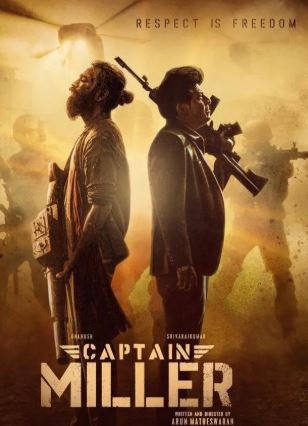In “Captain Miller,” viewers follow a story about the kingdom of colonial India, mixing action, politics, and the challenges of everyday life. This series highlights how violence filled the colonial era and applauds the determination of those fighting for their freedom. I related deeply to the film’s honest representation of confusion over right and wrong and people who refuse to accept what is being done to them.
The author describes Eesa, who searches for respect because of his caste background but eventually develops conscience against injustice. The story of how he changed from being a soldier to a revolutionary, and the issues he encountered, are all very gripping. Directing and cinematography make this film work, bringing together action and time to reflect. The impressive scenery and moving soundtrack bring out the emotions that the main characters go through.
Every performance is outstanding, but the lead actor’s portrayal of Eesa is especially strong and transparent. Velmathi and Sengolan, who are supporting characters, represented being loyal and sacrificing themselves at a difficult time. The movie offers an even mix of rowdy sequences and scenes that explore the characters’ emotions. The examination of how opposing authorities could be costly, leading to heartaches and moral debates, has stayed with me and encouraged remembrance of how harsh it can be to challenge authority. On the whole, “Captain Miller” is a moving film that clearly displays how humans hold fast to hope during difficult times.



